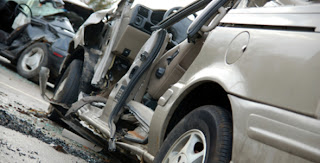Young people often spread the cost of insurance by paying their premium by monthly direct debit. Monthly installments can be convenient, but there is usually an extra charge, so make sure you understand the fees involved.
The high cost of car insurance for 17 year olds makes it all the more important to shop around for a good deal.
Why are premiums for young drivers so high?
Teenage drivers are ten times more likely to be killed or seriously injured in crashes than drivers aged 35 or over and, while the number of collisions on Britain's roads is falling, young drivers account for a growing share of the total. Many insurers simply refuse to cover young drivers because of the high risk of costly claims. This explains why the insurers who do actually provide car insurance for 17 years olds set such high prices.
Does a 17 year old need their own insurance policy?
If you are the owner or main driver of the car, the policy must be in your name. It is illegal to insure your car in your parents' name and put yourself down as a named driver - a tactic known as fronting.However, if you occasionally drive your parents' car, they can legally add your name to their insurance. It will push up the price, but it will probably be cheaper than a separate policy, and therefore one of the cheapest options when it comes to buying car insurance for 17 year olds. Bear in mind, though, that if you piggyback on your parents' insurance you won't be able to build up a no claims discount (NCD).
What is a no claims discount?
Insurers reward drivers who don't make claims with a discount on their premiums. A NCD can prove extremely valuable. If, for example, you don't make a claim for five consecutive years you could knock up to 70% off your premium.Should I buy comprehensive cover?
A comprehensive policy covers your car against any damage in an accident. It can also include a range of other benefits, such as a courtesy car and breakdown assistance.
Third party insurance is usually cheaper than comprehensive cover, but you should think very carefully before you opt for the minimum requirement. In the event of a claim, you could spend a fortune on repairs to your own car.
Consider pay as you go insurance
As well as offering temporary car insurance for 17 year olds, a number of firms also offer pay-as-you-drive cover, using new technology to drive down the cost of premiums. They will fit a 'black box' to your car to track your movements and driving habits. Motorists who drive fewer miles or who avoid rush hours and night time driving will usually pay a lower premium. If you are prepared to restrict your driving to 'safer' times, a black box, pay-as-you-drive policy can make all the difference to a 17 year olds car insurance premium.
Tips for cheaper car insurance
- Drive carefully. You will pay less for your car insurance if you have a clean claims record. Any convictions for speeding or other motoring offences will also push up the cost.
- Insurers don't like boy - or girl - racers. So choose a car with a small engine and no modifications. You can get details of the various car insurance groups on the website of the Association of British Insurers .
- Security devices such as car alarms and immobilisers can help to lower premiums if they are approved by the insurer. It also helps if you can keep the car in a locked garage when not in use.
- Consider taking the Driving Standards Agency's Pass Plus course, which gives extra tuition on night, motorway and inner city driving. Insurers and brokers can offer substantial discounts - sometimes as much as 35% - to newly qualified drivers who have completed the course. Pass Plus takes around six hours and can cost anything up to £150.
- Many insurers will offer a discount if you add a more experienced driver, such as a parent, to the policy. But remember that it's illegal for your mum or dad to put the policy in their name if they are not the main driver.
- Car insurance policies include a standard excess, which is the amount you must pay towards each claim. If you are happy to pay a higher excess, you will be rewarded with a lower premium. But don't set the excess so high that you could not afford to pay in the event of a claim.






























































